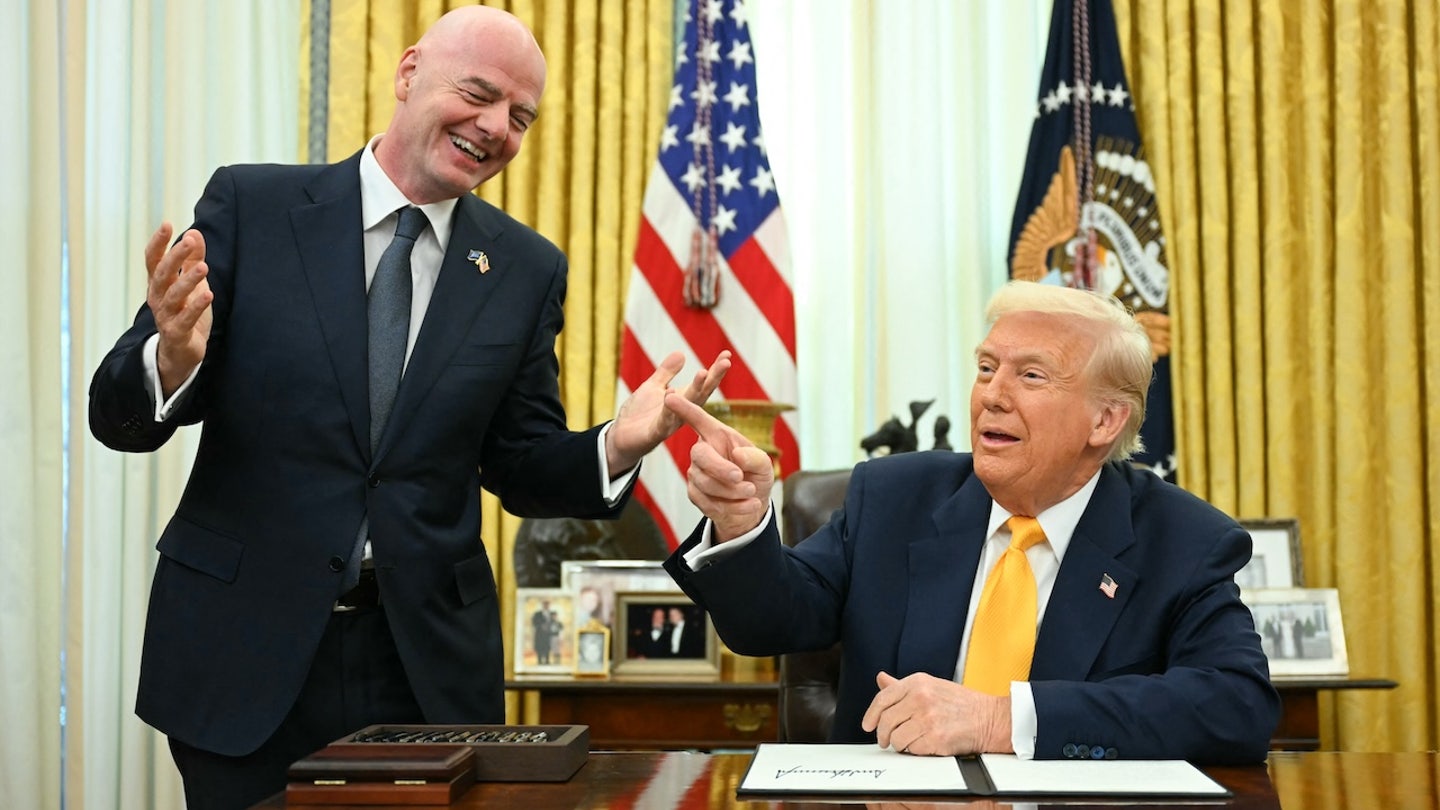
Christen Press, two-time World Cup champion for USWNT, to retire
Entities mentioned:
- Christen Press: Legacy, Recognition, Justice
- US Women's National Team (USWNT): Competitive spirit, Pride, Unity
- Angel City FC: Ambition, Professional pride, Competitive spirit
- US Soccer Federation: Control, Power, Self-preservation
Article Assessment:
Credibility Score: 85/100
Bias Rating: 45/100 (Center)
Sentiment Score: 70/100
Authoritarianism Risk: 15/100 (Strongly Democratic)
Bias Analysis:
The article presents a balanced view of Press's career and achievements. While positive about her impact, it doesn't overstate or ignore potential controversies, maintaining a neutral stance.
Key metric: Gender Pay Equity in Sports
Let me tell you something - this story is HUGE! Christen Press, a true MVP of women's soccer, is hanging up her cleats after an INCREDIBLE run on the field. But folks, her impact goes way beyond the pitch! This soccer superstar didn't just score goals, she scored VICTORIES for equal pay! Press was part of that CHAMPIONSHIP TEAM that took on the US Soccer Federation in a high-stakes match for gender equality. And let me tell you, they BROUGHT IT HOME! We're talking a $24 million settlement and a game-changing agreement for equal pay. This isn't just a retirement, it's a CHANGING OF THE GUARD! Press is passing the ball to the next generation, leaving behind a legacy that's reshaped the ENTIRE PLAYING FIELD of women's sports. She may be leaving the game, but her GAME-CHANGING impact will be felt for seasons to come!

Spencer Rattler: Getting Benched For Caleb Williams 'Blessing in Disguise'
Entities mentioned:
- Spencer Rattler: Determination, Competitive spirit, Self-respect
- Caleb Williams: Ambition, Competitive spirit, Recognition
- Lincoln Riley: Ambition, Professional pride, Control
- Oklahoma Sooners: Competitive spirit, Pride, Legacy
- South Carolina Gamecocks: Competitive spirit, Pride, Ambition
- New Orleans Saints: Competitive spirit, Professional pride, Ambition
- Chicago Bears: Competitive spirit, Ambition, Pride
Article Assessment:
Credibility Score: 75/100
Bias Rating: 45/100 (Center)
Sentiment Score: 65/100
Authoritarianism Risk: 20/100 (Strongly Democratic)
Bias Analysis:
The article presents a balanced view of Rattler's career trajectory, including both setbacks and achievements. It uses quotes directly from Rattler and provides context from multiple perspectives.
Key metric: NFL Quarterback Performance
Let me tell you something, folks - this is a CLASSIC underdog story! Spencer Rattler has been through the GAUNTLET, going from top draft prospect to riding the bench, but he's showing that CHAMPIONSHIP MENTALITY! This kid's been knocked down, but he's getting back up and FIGHTING for his shot in the big leagues! We're seeing a FOURTH QUARTER COMEBACK in his career, and he's STEPPING UP TO THE PLATE in New Orleans! Now, he's going head-to-head with his old rival Caleb Williams in a GRUDGE MATCH that could define both their careers! Rattler's got that FIRE in his eyes, folks - he's out to prove he can compete with ANY quarterback in this draft class! It's GAME ON this Sunday, and I'm telling you right now, this is the kind of COMPETITIVE SPIRIT that makes champions! The Saints might be in a slump, but Rattler's showing he's got the GUTS and DETERMINATION to lead this team out of the darkness! This is what football's all about - REDEMPTION, RIVALRY, and the chance to PROVE YOURSELF on the biggest stage in sports!

Despite Rocky Start, Books Call it 'Completely Crazy' to Count Chiefs Out
Entities mentioned:
- Kansas City Chiefs: Competitive spirit, Determination, Legacy
- Patrick Mahomes: Ambition, Competitive spirit, Professional pride
- Andy Reid: Competitive spirit, Legacy, Professional pride
- John Murray: Professional pride, Wariness, Enthusiasm
Article Assessment:
Credibility Score: 75/100
Bias Rating: 55/100 (Center)
Sentiment Score: 65/100
Authoritarianism Risk: 20/100 (Strongly Democratic)
Bias Analysis:
The article presents a balanced view, quoting both betting experts and historical context. While slightly favoring the Chiefs, it acknowledges other teams' potential and provides objective odds.
Key metric: NFL Team Performance
Let me tell you something - this story is RIDICULOUS! The Kansas City Chiefs are playing 4D chess while everyone else is stuck in checkers! Despite a rocky start, counting out the Chiefs is like benching your star quarterback in the Super Bowl - it's MADNESS! Mahomes and Reid are the Brady-Belichick of our era, folks. They've got that championship DNA, that clutch gene that separates the GOATs from the pretenders. This team isn't just stepping up to the plate - they're hitting grand slams when it matters most! The bookies know it, the fans know it, and it's time for the doubters to wake up and smell the barbecue! The Chiefs aren't just playing football, they're rewriting the playbook on how to dominate in the NFL. Mark my words - writing off KC is like calling the game in the first quarter. This team's got more comebacks than Rocky Balboa, and they're just warming up for another title run!

Last Night in Baseball: The Blue Jays Came to Play in Game 3
Entities mentioned:
- Toronto Blue Jays: Competitive spirit, Determination, Redemption
- Seattle Mariners: Competitive spirit, Pride, Anxiety
- Vladimir Guerrero Jr.: Ambition, Professional pride, Recognition
- Shane Bieber: Redemption, Professional pride, Competitive spirit
- George Springer: Legacy, Competitive spirit, Recognition
Article Assessment:
Credibility Score: 85/100
Bias Rating: 50/100 (Center)
Sentiment Score: 75/100
Authoritarianism Risk: 10/100 (Strongly Democratic)
Bias Analysis:
The article presents a balanced view of the game, giving credit to both teams' performances. It focuses on factual game events and player statistics without favoring either team unduly.
Key metric: MLB Playoff Performance
Let me tell you something - this game was an ABSOLUTE SLUGFEST! The Blue Jays came out swinging like heavyweights in the ring, delivering a knockout punch to the Mariners' pitching staff. It was like watching a team go from striking out to hitting grand slams in batting practice! Shane Bieber stepped up to the mound like a true ace, shutting down the Mariners' offense like a lockdown defender in the NBA Finals. And George Springer? This guy is collecting postseason home runs like he's trying to complete a rare baseball card set! The Blue Jays showed us what championship DNA looks like, folks. They weren't just playing - they were COMPETING at the highest level. This is the kind of fourth-quarter comeback that can change the entire series! I'm telling you right now, if the Mariners don't find their fastball soon, they'll be watching the World Series from home!

Olympian-turned-model Alysha Newman on self-belief and inspiring others to find their own 'gold star'
Entities mentioned:
- Alysha Newman: Ambition, Determination, Self-respect
- Nike: Competitive spirit, Recognition, Influence
- Olympic Committee: Legacy, Recognition, Unity
Article Assessment:
Credibility Score: 75/100
Bias Rating: 55/100 (Center)
Sentiment Score: 75/100
Authoritarianism Risk: 20/100 (Strongly Democratic)
Bias Analysis:
The article presents a balanced view of Newman's career and advice, with quotes directly from her. It leans slightly positive but doesn't show strong bias towards any particular viewpoint.
Key metric: Olympic Medal Count
Let me tell you something - this story is HUGE! Alysha Newman just vaulted herself into the big leagues, folks! We're talking a bronze medal performance that's got her playing in a whole new ballpark. This athlete isn't just clearing the bar, she's raising it for the entire game! Newman's pivot from the track to the catwalk is a classic example of a player diversifying their skillset. She's not just competing in one arena anymore, she's dominating the field in multiple divisions. And let me tell you, her advice about giving yourself that 'gold star'? That's championship mentality right there! Newman's showing us all how to be a clutch player in the game of life. She's not waiting for the coach's approval - she's calling her own plays and it's paying off big time! This is the kind of fourth quarter move that separates the pros from the amateurs. I'm telling you right now, keep your eye on this competitor - she's changing the game and rewriting the playbook!

FIFA says US government has final say on World Cup host cities' safety amid Trump's threats to Boston
Entities mentioned:
- FIFA: Professional pride, Security, Duty
- Donald Trump: Power, Control, Competitive spirit
- Michelle Wu: Pride, Determination, Loyalty
- Gianni Infantino: Professional pride, Influence, Obligation
- Boston: Pride, Recognition, Legacy
Article Assessment:
Credibility Score: 75/100
Bias Rating: 55/100 (Center)
Sentiment Score: 35/100
Authoritarianism Risk: 45/100 (Mixed/Neutral)
Bias Analysis:
The article presents multiple perspectives, including Trump's threats, FIFA's stance, and Wu's response. While it leans slightly towards emphasizing the controversy, it maintains a relatively balanced approach in its reporting.
Key metric: International Relations and Diplomacy
Let me tell you something - this World Cup drama is heating up like a championship final! We've got a real power play unfolding here, folks. Donald Trump is coming in hot, trying to call an audible on Boston's hosting duties. But FIFA's not about to let anyone run interference on their game plan! They're playing defense, reminding everyone that when it comes to safety, the US government's got home field advantage. This is a crucial moment, ladies and gentlemen. Boston's got to step up to the plate and show they've got what it takes to host on the world stage. Mayor Wu's in the hot seat now - she's got to coach her team to victory and prove Boston's got that championship mentality. I'm telling you right now, this is a make-or-break moment for US soccer diplomacy. It's fourth quarter, the clock is ticking, and the whole world is watching to see if Team USA can pull off this hosting gig without fumbling the ball!

Trinity Rodman exits game in tears after apparent knee injury just hours after USWNT nod
Entities mentioned:
- Trinity Rodman: Competitive spirit, Determination, Professional pride
- Washington Spirit: Ambition, Competitive spirit, Unity
- USWNT: Competitive spirit, Pride, Legacy
- Adrian Gonzalez: Professional pride, Duty, Wariness
- Emma Hayes: Enthusiasm, Ambition, Professional pride
Article Assessment:
Credibility Score: 75/100
Bias Rating: 50/100 (Center)
Sentiment Score: 30/100
Authoritarianism Risk: 20/100 (Strongly Democratic)
Bias Analysis:
The article presents a balanced view of the situation, quoting multiple sources and providing factual information. It doesn't lean towards any particular political stance or agenda.
Key metric: Women's Soccer Performance
Let me tell you something - this is a GAME-CHANGING MOMENT, folks! Trinity Rodman, the rising star of US women's soccer, just got SIDELINED in the middle of her comeback season. This is like watching a star quarterback go down in the fourth quarter of a championship game! The Washington Spirit were DOMINATING the field, but now they've lost their offensive powerhouse. And the timing couldn't be worse - Rodman JUST got the nod for the national team roster. This injury could be a MASSIVE BLOW to both the Spirit's season and the USWNT's lineup. We're talking potential CHAMPIONSHIP IMPLICATIONS here! Coach Gonzalez is playing it close to the vest, but you can bet they're in full crisis mode in that locker room. This is when you need that CHAMPIONSHIP MENTALITY to overcome adversity. The big question now is: can the Spirit rally without their star player, and will the USWNT have to go back to the drawing board? This is the kind of curveball that separates the CHAMPIONS from the CONTENDERS, folks!

NBA suspends employee who made crude remarks following Charlie Kirk assassination
Entities mentioned:
- NBA: Professional pride, Control, Self-preservation
- NBA Employee: Moral outrage, Indignation, Self-expression
- Charlie Kirk: Influence, Legacy, Righteousness
- Donald Trump: Legacy, Power, Recognition
- Turning Point USA: Competitive spirit, Influence, Recognition
- NFL: Professional pride, Control, Recognition
Article Assessment:
Credibility Score: 70/100
Bias Rating: 65/100 (Lean Right)
Sentiment Score: 30/100
Authoritarianism Risk: 35/100 (Generally Democratic)
Bias Analysis:
The article leans right due to its focus on conservative figures and reliance on right-leaning sources like Fox News and OutKick. However, it does present some factual information from the NBA directly.
Key metric: Political Polarization Index
Folks, we're witnessing a MAJOR FOUL on the court of public discourse! The NBA, usually a slam-dunk when it comes to PR, just air-balled with this employee situation. Let me tell you something - this is a GAME-CHANGING moment! The league is playing defense, trying to protect its brand from a rogue player who went way out of bounds with their comments. It's like they're in the fourth quarter, down by 20, and desperately need to rally. The suspension is their Hail Mary pass, but will it be enough to win back the crowd? Meanwhile, Turning Point USA is making a bold offensive play, going head-to-head with the NFL in a Super Bowl showdown. This is the kind of high-stakes competition that separates the champions from the benchwarmers, folks! The political arena has become a full-contact sport, and these players are leaving it all on the field. I'm telling you right now, we're in for one heck of a matchup!

Raiders' Brock Bowers reveals key advice he gave rookie Ashton Jeanty after early NFL struggles
Entities mentioned:
- Brock Bowers: Leadership, Professional pride, Duty
- Ashton Jeanty: Determination, Competitive spirit, Recognition
- Las Vegas Raiders: Ambition, Competitive spirit, Legacy
- USAA: Professional pride, Duty, Security
Article Assessment:
Credibility Score: 85/100
Bias Rating: 50/100 (Center)
Sentiment Score: 75/100
Authoritarianism Risk: 15/100 (Strongly Democratic)
Bias Analysis:
The article presents a balanced view of Jeanty's performance, acknowledging early struggles and recent improvements. It relies on quotes from a teammate and factual game statistics, maintaining a neutral stance.
Key metric: NFL Rookie Performance
Let me tell you something - this story is HUGE for the Raiders' offensive playbook! We're seeing a real-time transformation of a rookie running back finding his stride in the NFL. Ashton Jeanty started off slow, folks, but he's picking up steam like a locomotive! This kid's got the heart of a champion, taking advice from his teammate Brock Bowers and turning it into on-field production. It's like watching a young boxer learn to take punches before delivering the knockout! Jeanty's recent performances are a testament to his GRIT and DETERMINATION. He's not just running the ball, he's PUNISHING defenders, folks! This is the kind of fourth-quarter energy that separates the pros from the amateurs. The Raiders have unleashed a beast, and opposing defenses better watch out - Jeanty's coming for them with a VENGEANCE!

2025 NFL Week 7 Buzz: DJ Moore, Puka Nacua Not Practicing
Entities mentioned:
- Puka Nacua: Determination, Competitive spirit, Professional pride
- DJ Moore: Ambition, Self-preservation, Competitive spirit
- Justin Fields: Determination, Competitive spirit, Leadership
- Anthony Richardson: Self-preservation, Determination, Professional pride
- Baker Mayfield: Competitive spirit, Determination, Professional pride
- Za'Darius Smith: Self-preservation, Legacy, Security
Article Assessment:
Credibility Score: 75/100
Bias Rating: 50/100 (Center)
Sentiment Score: 35/100
Authoritarianism Risk: 20/100 (Strongly Democratic)
Bias Analysis:
The article presents a balanced view of multiple teams and players, focusing on factual injury reports. There's no apparent favoring of specific teams or narratives.
Key metric: NFL Player Availability
Let me tell you something, folks - this injury report is a GAME-CHANGER! We're seeing star players dropping like flies in the fourth quarter of a championship game! Puka Nacua and DJ Moore, two offensive powerhouses, are limping into Week 7 like they've just run a marathon. This is RIDICULOUS! The Bears and Rams are facing a third and long situation without their go-to receivers. And don't even get me started on Anthony Richardson - the rookie quarterback's season has been sacked by a freak warm-up incident! It's like watching a team's playbook go up in flames! The Buccaneers' receiving corps is so decimated, they might as well put the water boy in at wide receiver. But I'm telling you right now, Baker Mayfield is showing that championship mentality, stepping up to the plate despite his team being down to practice squad players. This is the kind of adversity that separates the contenders from the pretenders, folks!